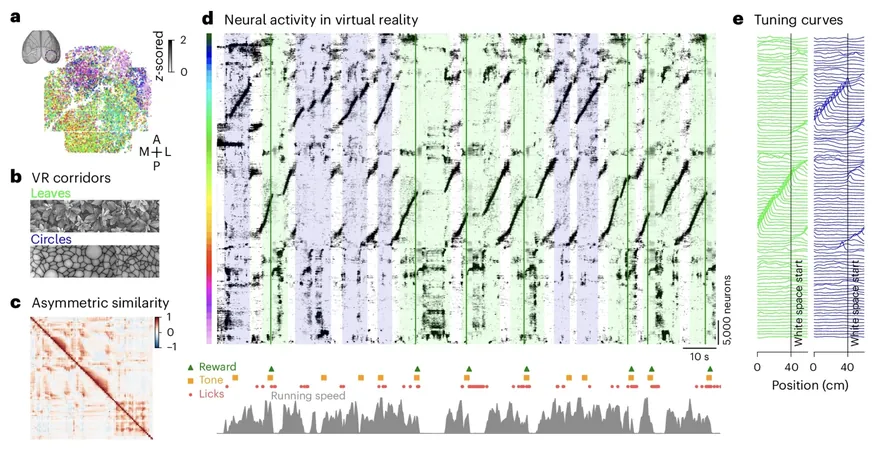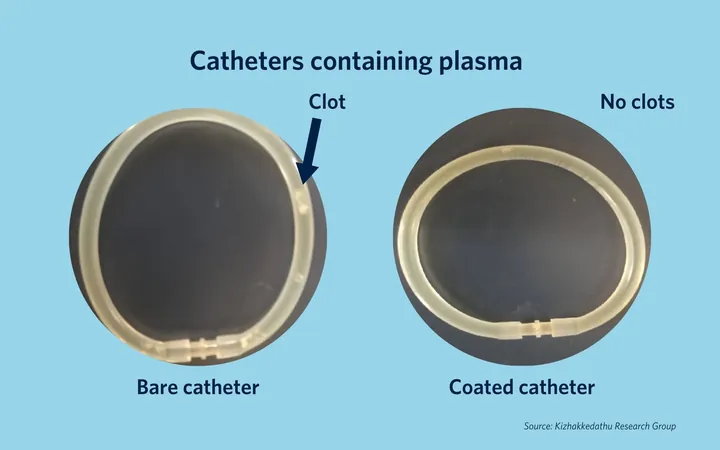
Hidradenitis Suppurativa: The Hidden Struggles of Stigma, Duration, and Depression
2024-11-12
Author: Wei
The Study: A Deep Dive into the HS Patient Experience
Conducted by an investigative team led by Dr. Servando E. Marron from the University Hospital Miguel Servet in Zaragoza, Spain, this pivotal study draws attention to the often-overlooked psychological burden experienced by those with HS. The visible symptoms of HS, such as painful nodules and abscesses, frequently lead to social isolation and mental health challenges, compounding the distress experienced by patients.
The study, which spans 17 European countries, is an observational, multicenter, cross-sectional analysis that took place from September 2017 to December 2019. Researchers recruited dermatology patients from 22 outpatient clinics, with a focus on individuals aged 18 and older who were proficient in their local language. From a sample size of nearly 5,500 dermatology patients, 135 with a confirmed HS diagnosis participated, contributing valuable insights into the impact of this chronic skin condition.
Participants provided demographic details, including age, gender, marital status, and educational background. The team utilized the EuroQol 5-D visual analog scale (EQ-VAS) to gauge overall health and document BMI alongside any existing physical ailments. Dermatologists evaluated the severity of HS—ranging from mild to severe—based on individual patient presentations.
To quantify stigmatization, the team employed the 21-item Perceived Stigmatization Questionnaire (PSQ), which examines three key behaviors: confused or staring reactions, absence of friendly behavior, and outright hostility.
Alarming Findings
The results painted a sobering picture. Over 70% of participants were female, with an average age of 38.2 years. Notably, significant levels of stigmatization were reported among those with HS. Statistical analysis indicated a direct correlation between the duration of HS and the severity of stigmatization experienced, as well as the prevalence of itch.
Moreover, participants who scored higher on measures of depression reported heightened experiences of being stared at or confused by others. The study established an inverse relationship between general health ratings and the absence of friendly behavior, suggesting that lower health statuses foster greater stigmatization.
The analysis also indicated a troubling link between increased depression levels and perceptions of hostility from others.
The Broader Implications for HS Patients
"This research highlights the urgent need for awareness and understanding of the challenges faced by HS patients," says Dr. Marron. "Our findings demonstrate that the burden of stigmatization extends far beyond the physical symptoms of the disease. Psychological support has become critical."
Moreover, the prevalence of HS is under-recognized, with an estimated 2.6% of dermatology patients diagnosed with this condition. As a chronic skin disorder that can lead to debilitating effects on individuals' daily lives and relationships, the findings suggest that healthcare providers should integrate mental health evaluations and support into standard HS care protocols.
In Conclusion
Patients with hidradenitis suppurativa not only battle the physical manifestations of this chronic illness but also confront profound social stigmatization that can exacerbate feelings of isolation and despair. As research continues to unfold, calls for better psychological assistance and public awareness are becoming increasingly crucial. Understanding the conditions affecting HS patients can lead to a more compassionate and supportive approach to treatment, reducing stigma, and improving mental health outcomes.
Stay tuned as we continue to explore the intricate connections between chronic illnesses and mental wellbeing, and highlight the voices of those who face the everyday realities of these challenges.




 Brasil (PT)
Brasil (PT)
 Canada (EN)
Canada (EN)
 Chile (ES)
Chile (ES)
 España (ES)
España (ES)
 France (FR)
France (FR)
 Hong Kong (EN)
Hong Kong (EN)
 Italia (IT)
Italia (IT)
 日本 (JA)
日本 (JA)
 Magyarország (HU)
Magyarország (HU)
 Norge (NO)
Norge (NO)
 Polska (PL)
Polska (PL)
 Schweiz (DE)
Schweiz (DE)
 Singapore (EN)
Singapore (EN)
 Sverige (SV)
Sverige (SV)
 Suomi (FI)
Suomi (FI)
 Türkiye (TR)
Türkiye (TR)